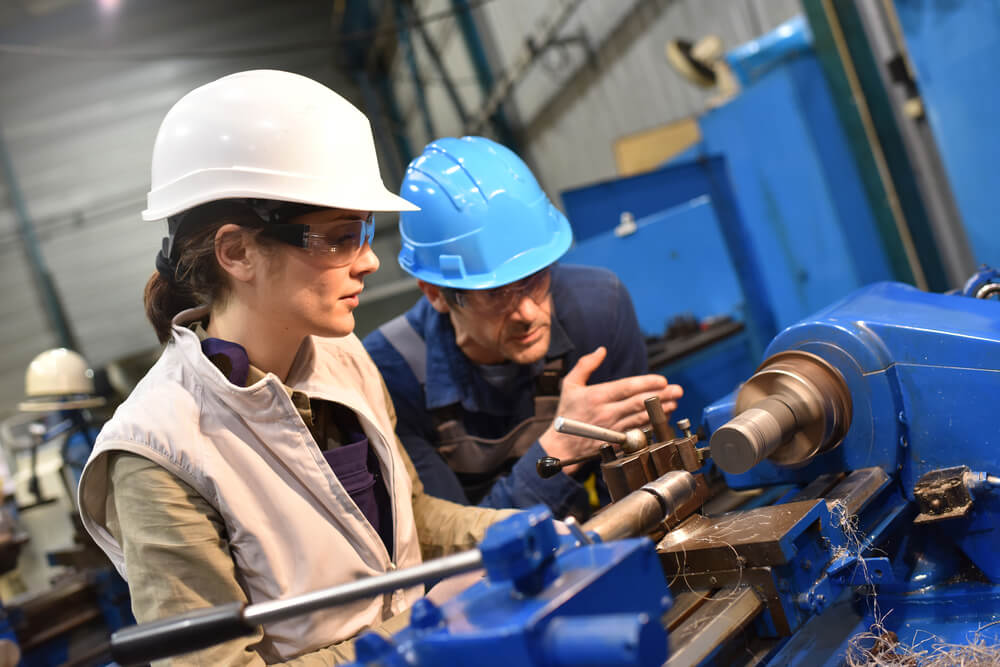We have addressed the topic of digital transformation before, even in sectors seemingly more tied to traditional business paradigms, such as manufacturing. And it is no mystery that, as the good practices of Industry 4.0 suggest, it is mainly companies of this type that benefit most from the digital transition. This is both because of the attention of Europe and institutions, which provide access to numerous resources, and because manufacturing industries have the opportunity to adopt technological solutions when they are at a more consolidated state, eliminating the risks associated with being early adopters. In addition to strictly operational aspects, we know that organizational aspects, such as teamwork, can also benefit from the advantages associated with digital transformation.
Why is teamwork more important than in the past?
The ability to work as a team has always been a fundamental aspect of corporate life, both at the production and management levels. Whether collaborating on the construction of a product or managing the financial flows of a company, the circulation of information and the responsiveness of the work team have always been crucial. Today, however, teamwork has taken on even more relevant connotations. Among the many reasons for this renewed need, we identify two in particular.
- The first is organizational in nature. While manufacturing operations used to be able to take advantage of established procedures, solutions, and often even products and services whose lifecycle was considerable, today the market increasingly demands speed and flexibility. It is no longer enough for staff to know how to do their jobs in the state of the art. It is often necessary to adapt quickly to new procedures, new needs and new ways of working. Achieving this flexibility is much easier within a close-knit team that can handle complex, and especially new, projects effectively.
- The second is more related to human resources. In the manufacturing world, especially in production departments,field experience is a key added value. This, of course, is more present in experienced workers who typically, for purely age-related reasons, have a lower propensity for change.
On the other hand, however, companies today increasingly need to combine field experience with new skills, often related to digital transformation, new work techniques, innovative materials, and so on. The propensity for these is mostly found in workers who have just completed training courses but typically lack field experience. With good teamwork organization, it is possible to overcome this dichotomy, allowing everyone to make the best possible contribution.
Support working groups and management of complex projects
This is where digitization comes in. As we know, one of the fundamental cornerstones of a successful industry today is the ability to make information permeable, at all levels and in all departments. The circulation of information always has a positive spin-off, both at the level of simple process efficiencies and, for example, at the management level. Providing efficient and appropriate communication tools to a work team reduces overhead time and internal bureaucracy, allowing staff to focus on real problems and concrete challenges. Reducing inefficiencies and enabling a better level of success also has a positive impact on the business climate, which brings us to another extremely positive factor.

In a world where supply and demand, even in terms of employment, are increasingly frenetic and global, even manufacturing companies need to keep an eye on their ability to attract, and retain, the skilled personnel they need. And in this, offering appropriate work tools and a positive and stimulating work climate are undoubtedly at the top of the list of best practices.
This has been a familiar theme since the 1990s under the name Employer Branding, that is, the ability of a company to build an attractive reputation as a place to work. This is an increasingly important characteristic in a world in which the search for talent is also part of the competition, and in which people are increasingly attentive to soft aspects in the search for their ideal employment. A focus evidenced by the existence of platforms such as Glassdoor, created precisely to meet people’s need to identify workplaces with precise characteristics.
Features that we can implement in our company thanks in part to the support of advanced digital tools.
Join the Regesta team: a young, dynamic team where people are always at the center!
Check available open positions or send us your unsolicited application by clicking here.